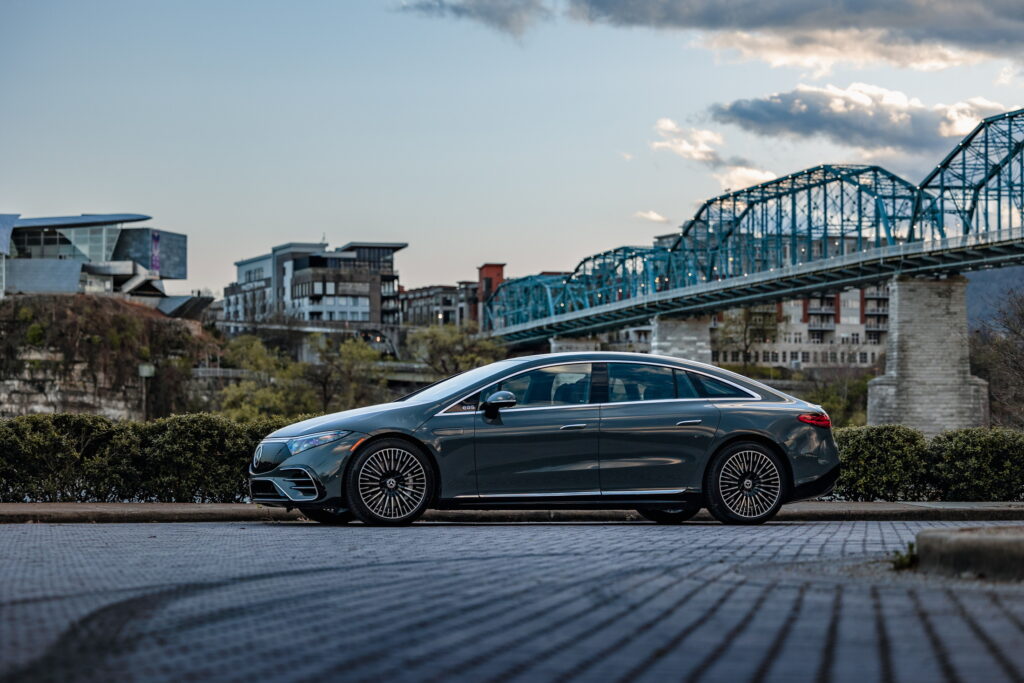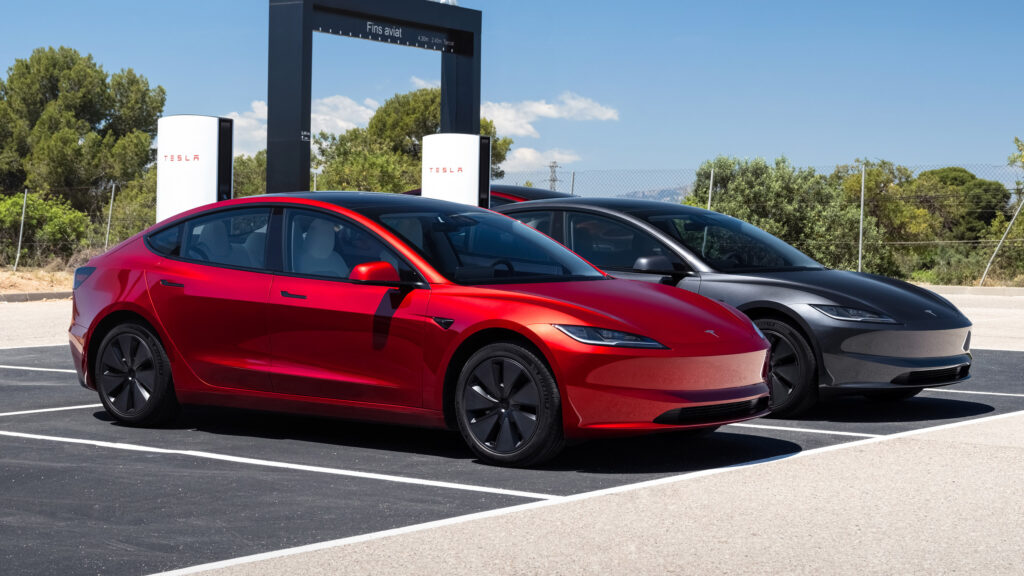- EVs lost market share in Germany last year, now making up just 13.5% of all new car sales.
- While EV sales dropped, hybrid sales grew by 12.7%, and PHEVs saw a 9.2% increase.
- In December 2023, the German government scraped incentives of up to €4,500 for EV buyers.
While major markets, including the United States and China, reported growth in electric vehicle sales throughout 2024, the same thing can not be said about Germany. In fact, sales of EVs plunged in the country last year, falling by 27.4%, as important subsidies were cut and the German economy struggled. According to one analyst, 2024 represented a “lost year for electro-mobility” in the country.
Germany is Europe’s largest and most important car market, but the figures don’t make for easy reading. In total, only 380,609 new battery-electric vehicles (BEVs) were sold in the country last year, a sharp fall from 2023’s numbers and a slump that dragged EV market share down to just 13.5%. For a country often regarded as a bellwether for automotive trends in Europe, it’s a bleak showing.
The Rise of Hybrids Amid EV Slump
As EVs struggled, traditional hybrids enjoyed a much rosier year in Germany. Hybrid sales jumped 12.7%, with 947,398 examples. That represents a 33.6% share of all new cars sold. Sales of plug-in hybrids also grew during the calendar year, rising by 9.2% to 191,905 units. Despite this jump, they still have a relatively small 6.8% share of the market.
Petrol-powered cars remain the most common powertrain type in Germany, accounting for 35.2% of all sales. Last year, 991,948 were sold, representing a 1.4% gain. Diesel car sales slowed by 0.7%, with 483,261 units – enough for a 17.2% share.

The main reason for the slump in EV sales across the country was the government’s controversial decision to drop subsidies in late December 2023. Local buyers had previously been offered up to €4,500 (~$4,700) when purchasing an EV, while manufacturers would receive €2,250 (~$2,300). Local transport minister Volker Wissing wanted to see the EV market stand on its own two feet without government assistance, but things haven’t panned out that way – at least not in 2024.
Read: EV Sales Sink 22% In Germany, Tesla Crashes 55%, But Hybrids Gain 20% In November
Not all hope is lost for Germans hoping to get some assistance in acquiring an EV, though. The nation will elect a new leader on February 23, and Chancellor Olaf Scholz has suggested a new support program on the European level could be introduced. Several politicians have joined the chorus, arguing that the auto industry needs more help, especially as the EU pushes forward with its plans to ban the sale of new combustion-engine cars in the coming years.
Winners and Losers in the Brand Race

Amid the turmoil, Germany’s auto market saw a mix of triumphs and tragedies among automakers. Unsurprisingly, Volkswagen held its dominant position, selling 536,888 cars (a 3.4% increase) and capturing a 19.1% market share. But not everyone shared in the good news. Tesla, for example, took a massive hit, with sales dropping 41% to just 37,574 units—proof that even the electric giant isn’t immune to subsidy cuts and economic uncertainty.
Meanwhile, Toyota saw an impressive 27% jump in sales, bolstered by its strong hybrid lineup, and Peugeot posted a massive 44% increase. On the flip side, luxury brands like Audi (-18.1%) and BMW (-0.1%) struggled to gain traction, while smaller players like Polestar (-49.4%) and BYD (-30.2%) got caught in the EV sales freefall.
Even smaller players in the market experienced widely contrasting outcomes. Lexus saw a remarkable 75.3% jump in sales, while Aston Martin (-46%) and Maserati (-48.3%) faced sharp declines. Surprisingly, some startups like Lucid delivered attention-grabbing results despite extremely modest volumes, with 392 units sold—a 296% surge—indicating that there’s still a niche audience willing to invest in ultra-premium electric vehicles, even amid a challenging market.



